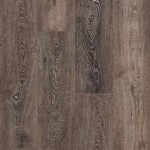Understanding Flooring Cost Comparisons
When embarking on a flooring project, understanding the cost comparisons between different flooring options is crucial for making an informed decision. Flooring costs can vary significantly depending on the material, installation, and other factors. Here are essential aspects to consider when comparing flooring costs:
1. Material Costs:
The type of flooring material you choose will significantly impact the overall cost. Natural materials like hardwood, stone, or marble can be more expensive than materials like vinyl, laminate, or carpet. Consider the durability, lifespan, and maintenance requirements of each material to determine the best value for your budget.
2. Installation Costs:
The cost of installing flooring can vary depending on the complexity of the installation, the size of the area, and the availability of skilled labor. Some flooring types, like hardwood or tile, require specialized skills and may have higher labor costs. Factor in these installation costs when comparing flooring options.
3. Underlayment and Subfloor Preparation:
Before installing flooring, it's often necessary to prepare the subfloor by installing underlayment or taking care of any unevenness. The type of underlayment used can impact the overall cost, as can any subfloor repairs or modifications.
4. Labor Rates:
The cost of labor will vary depending on the location, availability of contractors, and the specific installation requirements. Obtain quotes from multiple contractors to compare labor rates and ensure you're getting a competitive price.
5. Additional Costs:
There may be additional costs associated with flooring installation, such as removal and disposal of old flooring, moldings, or transitions. These costs should be considered when comparing flooring options.
6. Warranties and Maintenance:
Consider the warranties offered by different flooring manufacturers. A longer warranty can provide peace of mind and potential savings on future repairs. Additionally, factor in the maintenance costs associated with each flooring type. Some materials may require more frequent cleaning or repairs, which can impact the long-term cost.
7. Return on Investment:
While cost is an important factor, consider the potential return on investment when choosing flooring. Some flooring materials, such as hardwood or high-quality tile, can increase the value of your property. Conversely, inexpensive flooring may need to be replaced sooner, potentially negating any initial savings.
Comparative Analysis:
To compare flooring costs effectively, gather information on material costs, installation charges, and additional expenses from various suppliers and contractors. Use a spreadsheet or cost comparison tool to organize the data clearly. This will allow you to make an informed decision based on the total cost of ownership, not just the upfront cost.
Negotiation and Savings:
Don't be afraid to negotiate with flooring suppliers and contractors. Get multiple quotes, ask about discounts, and consider purchasing materials in bulk if possible. By being an informed consumer and exploring options, you can potentially save on your flooring costs without sacrificing quality.
By carefully considering these aspects, you can make a well-informed decision about the flooring that best meets your needs and budget. Remember to prioritize durability, functionality, and aesthetics to ensure your flooring investment stands the test of time.

The Complete Guide To Flooring Costs By Type Twenty Oak

Fixr Com Cost To Install Vinyl Flooring

Fixr Com Cost To Install Vinyl Flooring

Tile Vs Wood Flooring Major Differences Pros Cons And Costs Forbes Home

Fgs Permashine Long Term Savings For Your Polished Concrete Floors Laticrete

Maintenance Cost Comparison Terrazzo Vs Alternative Flooring

Laminate Vs Hardwood Flooring Major Differences Forbes Home

Fixr Com 2024 Laminate Flooring Installation Cost

Types Of Hardwood Flooring Forbes Home

Fixr Com 2024 Laminate Flooring Installation Cost
See Also







